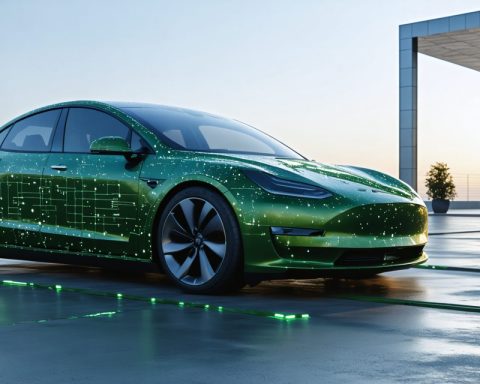The bicycle industry has been eagerly seeking a turnaround after a challenging period marked by financial hardships and business closures. While many experts anticipated a revival by 2025, a new analysis from Roland Berger suggests a delayed upturn, forecasting substantial growth will likely commence in 2026.
Roland Berger’s comprehensive study, highlighted by notable publications such as Wirtschaftswoche and eBike News, draws from insights of around 40 industry stakeholders primarily from German-speaking regions. The report suggests that the ongoing price competition, driven by excessive inventory and heightened market rivalry, is expected to benefit consumers for at least the next 18 months.
Despite previous record-breaking sales in 2021, when Europe saw 22.1 million bicycles sold, generating a revenue of 19.7 billion euros, industry analysts caution against expecting similar figures in the near future. The spectacular sales year of 2021 was considered an anomaly and is unlikely to be matched soon.
Electric bicycles remain a significant driver of growth, continuing their upward trend despite a slight market correction in 2023 seen in France and across Europe. However, one prominent e-bike manufacturer anticipates a 15% drop in their sales by 2025, though this is not reflective of the whole sector’s outlook.
In light of these findings, Roland Berger advises manufacturers to refine their product offerings, suggesting a more strategic approach with fewer product launches annually. The focus is on creating a more sustainable and structured market environment as the industry moves forward.
The Bicycle Revolution: Delays, Dilemmas, and the Drive Toward 2026
The bicycle industry, once buoyed by an unexpected boom, is now navigating a complex landscape shaped by fluctuating market dynamics and consumer behavior trends. While the latest forecasts from Roland Berger predict significant growth starting in 2026, this delay offers an intriguing mix of challenges and opportunities for individuals, communities, and countries alike.
Unexpected Challenges in the Bicycle Boom
The bicycle sector’s recent setbacks have sparked a range of responses, and understanding these can offer valuable insights. Although the cycling boom in 2021 brought a whirlwind of record-breaking sales with Europe’s 22.1 million bicycles generating 19.7 billion euros, the current sluggish revival highlights the sheer variability of consumer interest and economic influences.
Impact on Individuals and Communities
For the average consumer, ongoing price competition due to surplus inventory spells potential bargains. Customers have the opportunity to purchase high-quality bicycles and electric bikes at more affordable prices, thereby lowering entry barriers for cycling enthusiasts and sustainability advocates alike. This could, in turn, enhance urban mobility solutions and promote healthier lifestyles as more people integrate cycling into their daily commutes.
However, these price battles also put pressure on small businesses and local bike shops, which may struggle to compete with larger retailers. The closure of local stores could impact community access to bike servicing and personalized advice, emphasizing an indirect consequence on consumer experience and community connections.
National and Global Perspectives
From a broader viewpoint, the delayed revival of the bicycle market poses a challenge to national economies that invest heavily in cycling infrastructure as a part of urban development and environmental strategies. For countries championing eco-friendly transport, this delay might affect meeting green targets and could necessitate policy adjustments or additional incentives to stimulate the market.
Advantages and Disadvantages
The major advantage of the predicted recovery in 2026 is the industry’s ability to regroup and strategize. Roland Berger’s suggestion that fewer product launches could lead to more sustainable market practices underscores a shift towards quality over quantity. This could foster innovation, higher standards, and ultimately, greater consumer satisfaction.
Conversely, the primary disadvantage is the uncertainty and financial stress this delayed timeline implies. Businesses must withstand prolonged competition and potential cash flow issues, requiring robust contingency plans and possibly leading to job losses within the sector.
Questions Worth Pondering
– Can the reduction in product launches lead to higher innovation and quality in the long term? Indeed, a more focused approach may streamline R&D efforts and bring forth cutting-edge products without overwhelming the market.
– Will reduced prices effectively increase cycling uptake among the broader population? With cycling becoming more financially accessible, it’s possible to see a demographic shift with more diverse users taking to two wheels.
Points of Controversy
A critical point of debate is the effect of electric bicycles on the traditional cycling market. While e-bikes have remained a growth driver, they invite contention over cycling culture authenticity and safety concerns. Furthermore, with some manufacturers forecasting a drop in sales, industry voices argue whether this decline is a mere market correction or indicative of larger systemic issues.
For further reading on these developments, consider visiting Roland Berger, where you can explore their comprehensive analyses that shed further light on future industry trends. Interestingly, this article unveils not just a delay in recovery but an opportunity for the industry to redefine its path forward, urging both businesses and governments to remain agile and visionary in their approach.












